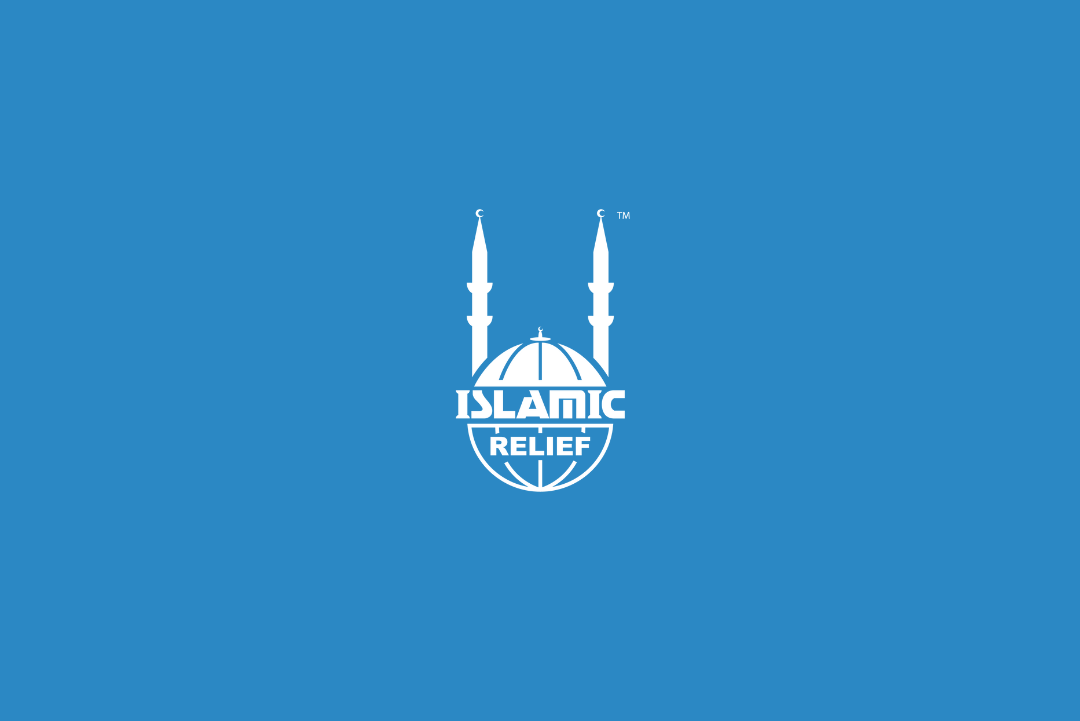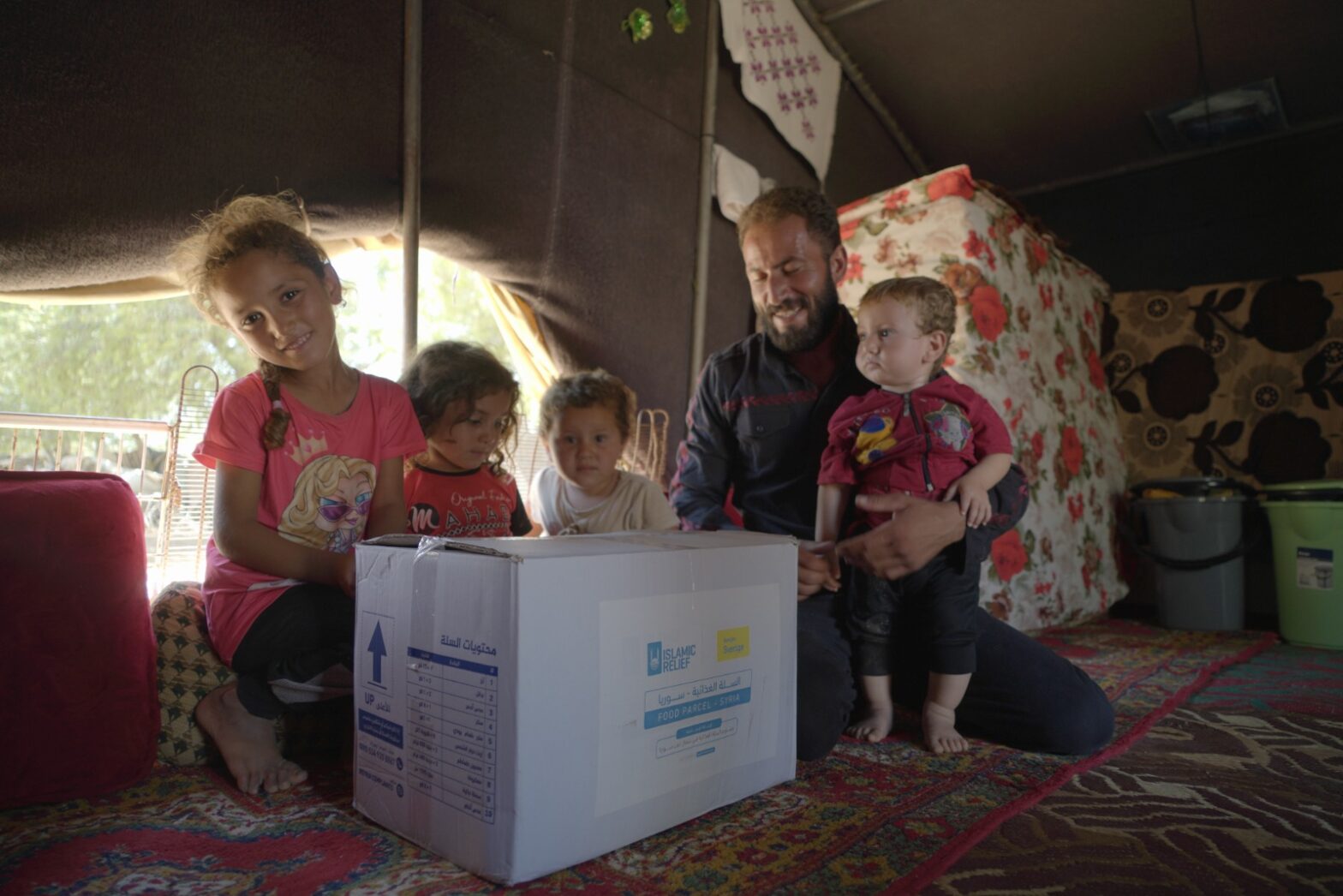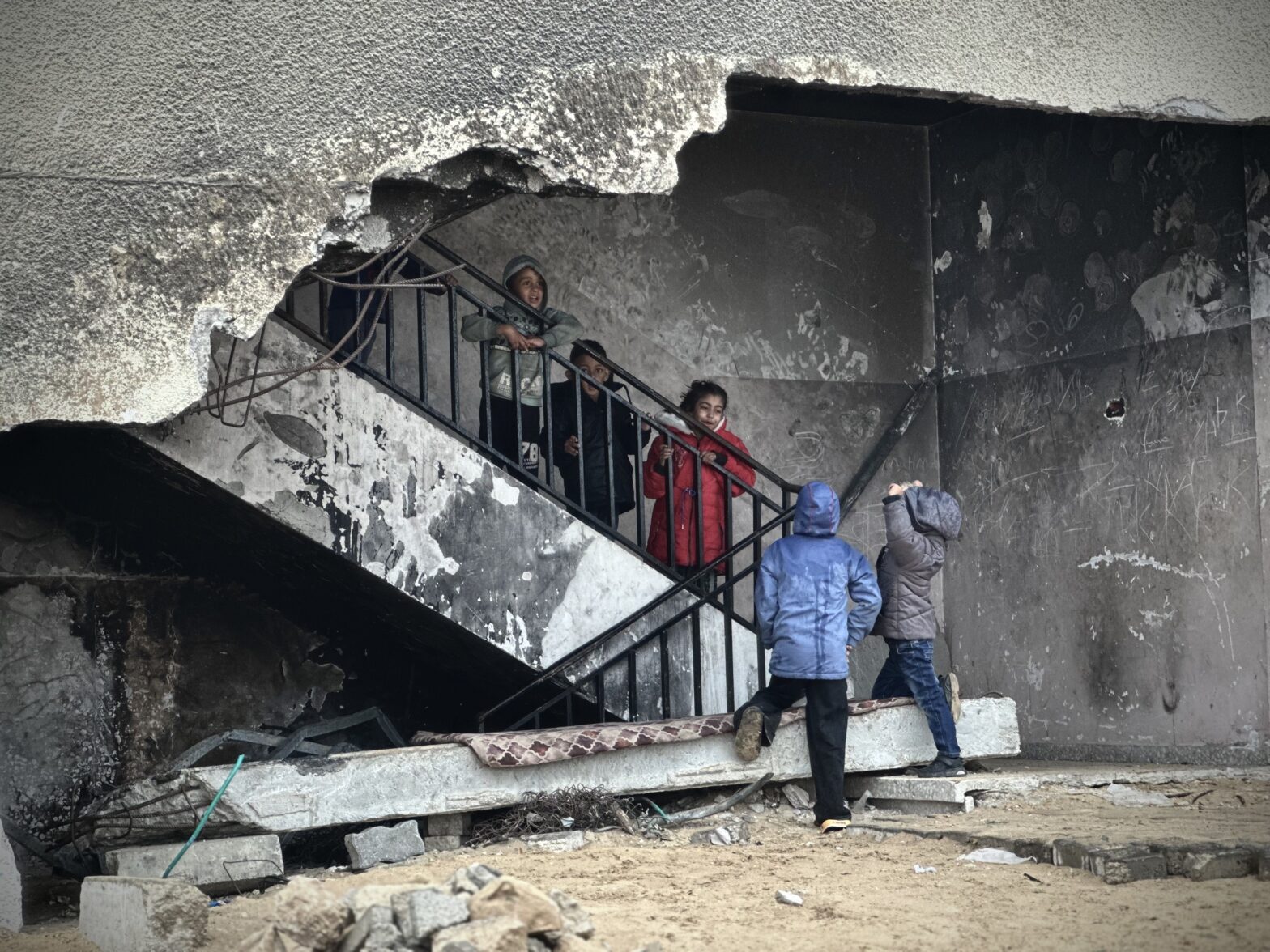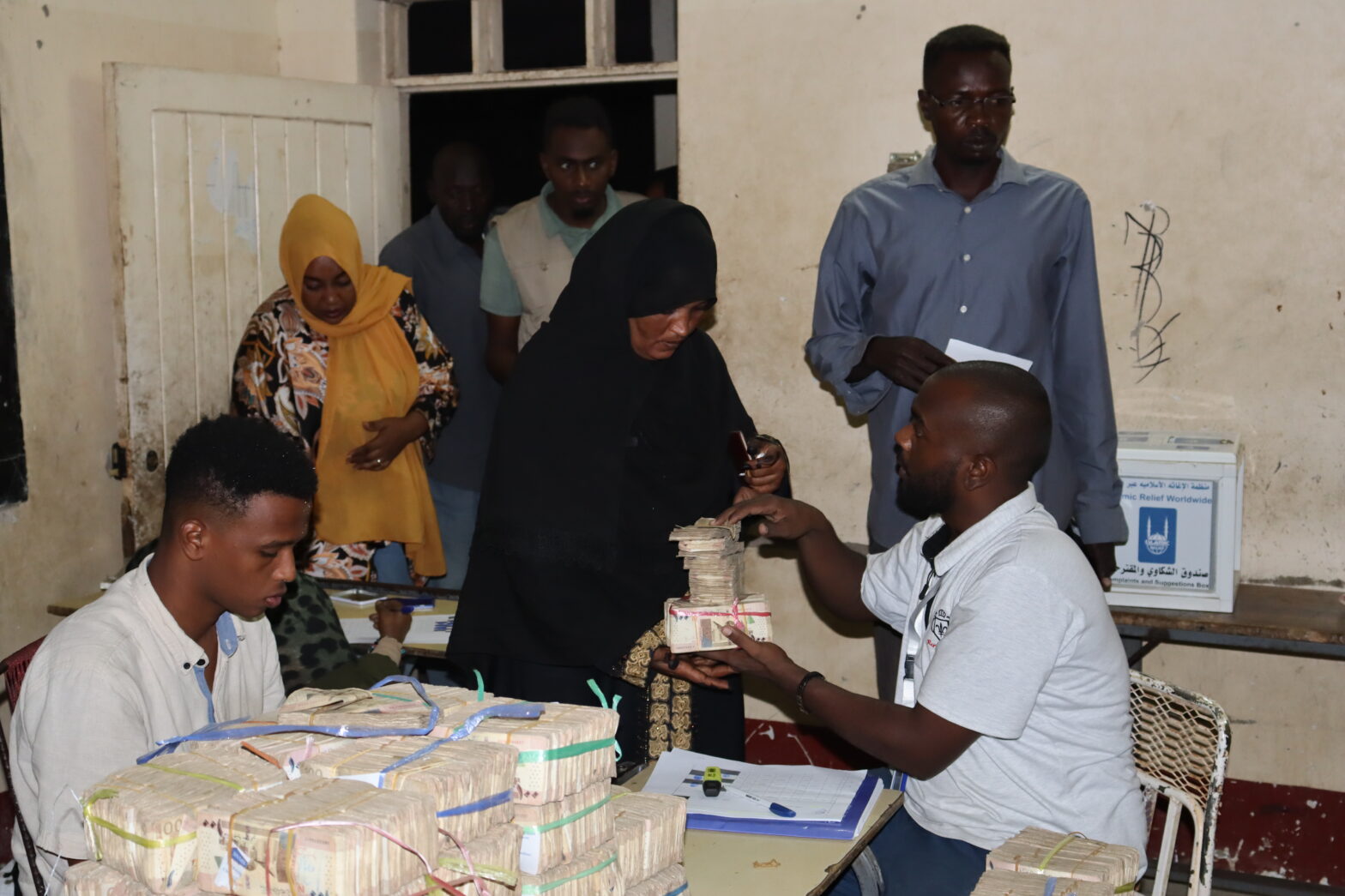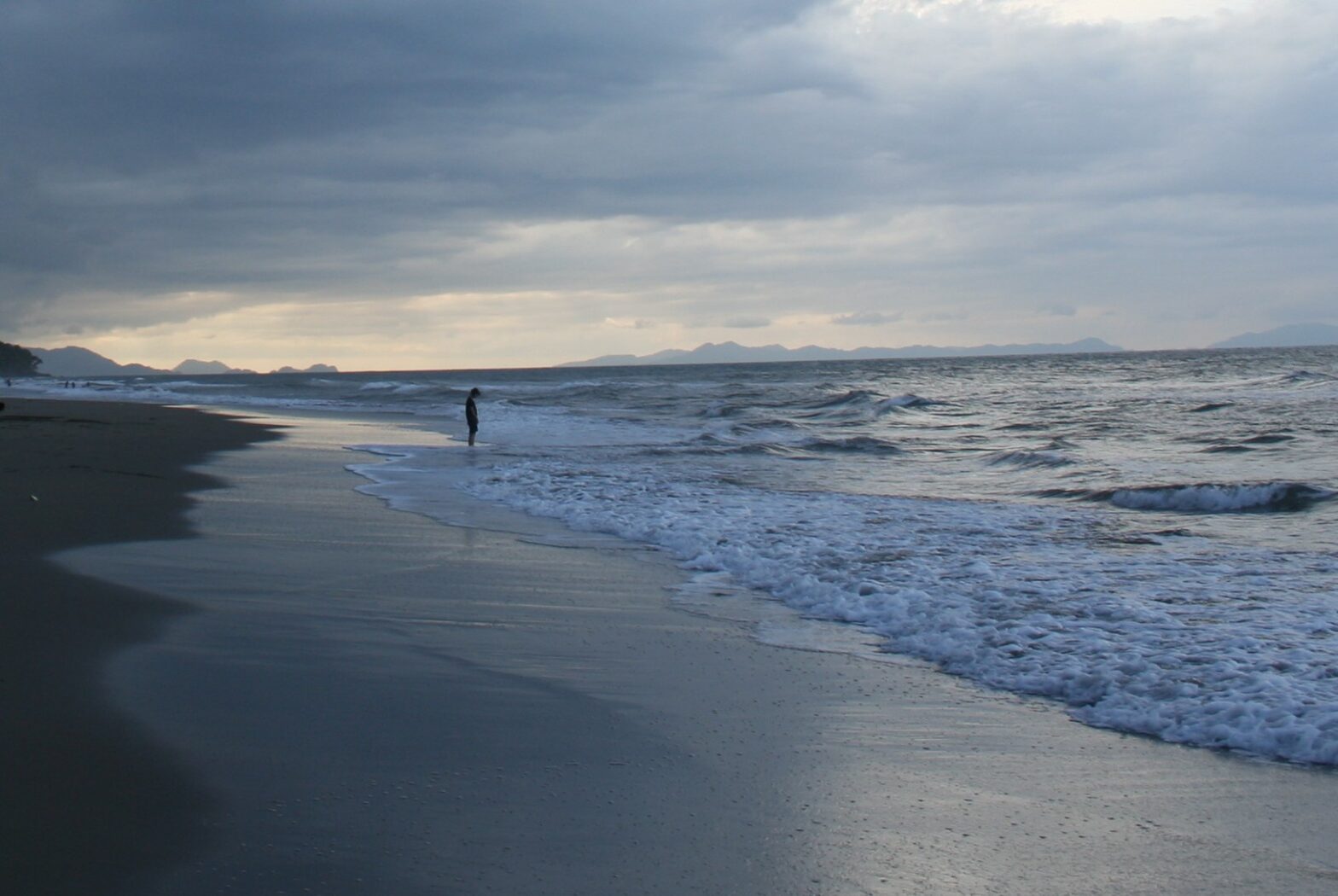20 years since the Indian Ocean tsunami – one of the worst natural disasters in history, which killed around 230,000 people in 14 countries and caused billions of dollars of damage – Islamic Relief has been speaking to survivors and aid workers about their experiences.
Survivors in Indonesia, where more than 130,000 people died, have compared the devastation to the impact of a nuclear bomb and many people are still scarred by the loss and trauma they experienced, but they highlighted how the spirit and resilience of local communities – together with international support – has remarkably helped the region recover.
Professor Ede Surya Darmawan, Chair of the Board of Trustees at Islamic Relief Indonesia and early responder to the disaster, recalls: “Banda Aceh looked like it had been hit by a nuclear weapon. All of the buildings were destroyed, even the trees had been pulled out of the earth by the water.”
In Banda Aceh the tsunami killed around a third of the people, made another third homeless, and destroyed 60% of buildings. One teacher told Islamic Relief that of the 300 pupils at his school only 18 survived. Most families lost their livelihoods as agricultural land was submerged and fishing boats destroyed. Today, many people still live in poverty, but overall poverty levels are lower than before the tsunami and metrics such as infrastructure and economy have rebounded to surpass pre-tsunami levels.
Dr Muslim Yakub, a tsunami survivor and now head of Aceh Social Department, with which Islamic Relief works, says, “Looking at the enormity of the disaster, we thought Aceh would take a long time to rise again. But, exceeding everyone’s expectations, Aceh quickly rose up. What made Aceh rise from its painful and very dark condition was the spirit of the Acehnese people to change and seek a better life… because the world helped Aceh, we did not feel alone.”
The tsunami, which hit on 26 December 2004, was caused by a 9.3 magnitude earthquake under the Indian Ocean, one of the most powerful ever recorded that released energy equivalent to 23,000 Hiroshima-type atomic bombs. It sparked waves that reached up to 51 metres high and 500 miles per hour.
Budi Permana, a logistics assistant at Islamic Relief Indonesia in Aceh, lost his 13-month-old child in the water. He recalls the moment the waves struck:
“I thought it was the end of the world because everything was covered with water. My wife saw from a distance that the water was very, very high, and then I tried to lift my child and I went up to the second floor [of my house]… after that suddenly my house was surrounded by water and collapsed, and we were scattered…
“It was like I was being rolled by the waves, like in a washing machine. I was flipped with my head back, like a somersault, and sometimes I would touch the ground and sometimes I was thrown up. It was like being flipped up and down. In those moments, I saw so many things happening – small children who were lost, small children who entered the whirlpool… Why did I survive? I survived because I tried to hold onto a sofa that happened to pass by me. I immediately grabbed it, and I survived. The sofa stopped at a coconut tree, and I thought that if I didn’t grab the tree, I would be taken out to sea.”
The global aid response to the tsunami was unprecedented for a natural disaster, with around $6.25 billion in donations to the UN central relief fund which assisted 14 countries. Islamic Relief aid workers deployed to the response recall the smell of dead bodies striking them as soon as they stepped off the plane.
Haroon Kash, who was deployed from the UK to support Islamic Relief’s emergency response in Indonesia, recalls: “The smell of dead bodies lingered everywhere I went over the next 5 weeks.”
In the first week following the disaster, Islamic Relief distributed food, tents and drinking water to survivors in the worst-affected countries: Indonesia, Sri Lanka and India.
Over the following months and years Islamic Relief helped people rebuild their livelihoods and constructed new infrastructure that is still in use today 2 decades later. In Aceh alone this included over 1,000 new homes, 27 health clinics, a hospital and 23 schools.
Marlina is director of a healthcare centre in Aceh that was built by Islamic Relief after the tsunami and is today staffed mostly by women. She recalls working to prevent the spread of diseases in the aftermath, but being particularly worried about the psychological impact:
“The main health issue at that time was with mental health. The community was very depressed… they felt as if they hadn’t just experienced a tsunami, but the end of the world. They stopped caring about their own health. Even the healthcare workers were also traumatised.”
Gradually, Marlina says, people’s mental health began to recover as they moved out of their tents and into temporary, and later, permanent homes.
In Indonesia alone some 30,000 children were orphaned by the tsunami and Islamic Relief provided many orphaned children and their surviving relatives with long-term support for schooling and healthcare. Today many of them are now thriving as graduates, teachers, civil servants or running small businesses.
Nur was 10-year-old when the tsunami hit and killed her parents. The support from Islamic Relief’s orphan sponsorship programme helped her complete her education and open a tailoring workshop with her friend.
“Alhamdulillah, the support from Islamic Relief was very beneficial to me as I could complete my degree. I am proud. Although we couldn’t ask our parents for support, we can now stand on our own 2 feet with this business.”
Today 73% of Indonesia’s schools are still located in disaster-prone areas. At Islamic Relief-supported schools children learn what to do in case of emergencies and practice evacuation protocols, but there is still more that can be done.
Budi Permana says: “We must remember our past, the bad things in our past… We cannot forget because it’s our story. But we can make a distance from it. I also have a message for the government. We have to prepare for the next disaster, including through putting energy into logistics and spreading knowledge about disasters among the people.”
Notes
For more information, see https://islamic-relief.org/indonesia-tsunami/
The tsunami primarily affected several Asian countries but also impacted parts of Africa and the Middle East. The most severely affected countries were Indonesia (131,028 people killed), Sri Lanka (31,229), India (16,260) and Thailand (5,395), but many other countries also suffered damage and loss of life including Somalia (176 dead), the Maldives (82), Malaysia (75), Myanmar (61), Tanzania (10), the Seychelles (3), Bangladesh (2), South Africa (2), Kenya (1) and Yemen (1).



